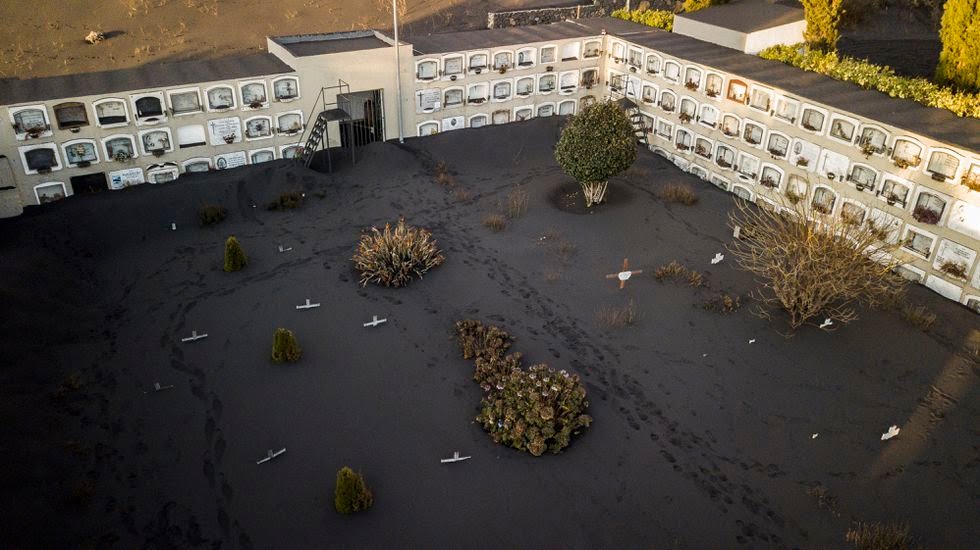
ON a day when families across Spain traditionally gather together to visit the graves of their lost loved ones, it was particularly hard for one grieving father on the island of La Palma.
Oliver Martin was unable to visit the grave of his daughter Violeta, who died three years ago when she was aged just 14.
Every day since her tragic early death, he visited her grave at the cemetery in Tazacorte. That is until September 19 when the Cumbre Vieja volcano started spewing lava and immediately transformed the area into a no-go zone.
Since then the area where the cemetery is located has been designated a restricted area as it is at threat from being covered by lava flow.
The graves have already disappeared beneath a thick layer of volcanic ash but could be lost forever if the lava flow comes their way.
Martin is among several locals who have made a request to exhume the bodies of loved ones from graves within the cemetery and move them to a safer place, while there is still time.
“I have asked the authorities through the officially regulated channels to allow me to exhume my little girl,” Martin told a news programme on state broadcaster TVE.
“I do not want to be in the situation of the lava arriving without having had the opportunity to remove the remains of my daughter from there,” he said.
More than 900 hectares of the island has already been lost beneath molten rock, while more than 2,500 buildings have been destroyed.
Since the eruption began at least 7,000 people have had to evacuate their homes.
On Monday, a military helicopter hovered over Los Angeles cemetery in Las Manchas scattering flowers over graves that were unable to be visited by families this year.
Journalist Jave Rodriquez shared a drone image of the cemetery with the words: “My grandmother is buried under those ashes. I left handwritten verses in a corner of the tombstone. She liked that cemetery because it had views of the valley, she told me. It is hard to bury a person once, but it is harder to bury them twice.”
READ ALSO:
